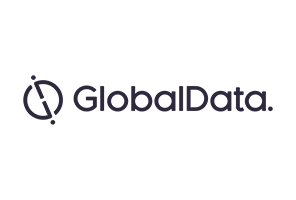Strategic alliances between various drug development stakeholders are not usually the largest oncology asset deals recorded, but can provide important clues to the overall strategy and direction of drug development in this crowded therapeutic area. In Q1 2017, GlobalData noted that the largest oncology licensing deals included a variety of different types of companies but held the common theme of involving development of Immuno-oncology (IO) drugs.
The largest licensing agreement in the first quarter of 2017, valued at $1.8B, was in the IO space and involved licensing of Pieris Pharma’s PRS-332 checkpoint inhibitor program by Servier with an option for co-development and commercial rights to three additional programs. Following behind in dollar amount, but not potential value at $795M, was Incyte’s license agreement with Calithera Biosciences for several small molecule arginase inhibitors being developed in a variety of oncology and hematology indications.
The third largest oncology licensing agreement during Q1 2017 involved a deal that is aimed towards resolving ongoing patent infringement disputes between IO drug powerhouses Merck & Co and Bristol-Myers Squibb (BMS) over Merck’s PD-1 inhibitor, Keytruda. The litigation states that Merck’s sale of Keytruda infringes upon BMS’s patents for their PD-1 inhibitor, Opdivo and under the terms of the agreement, Merck will pay BMS $625M upfront with an obligation to pay ongoing royalties on global sales of Keytruda of 6.5% from January 1, 2017 through December 31, 2023, and 2.5% from January 1, 2024 through December 31, 2026.
The deal contains other stipulations as well regarding each of their PD-1 drug patent portfolios but in general is designed to ensure that research and development as well as access to PD-1 therapies for patients continues without legal barriers. Whether this deal will have implications for other companies with checkpoint inhibitors in the pipeline remains to be seen, however.
In yet another deal involving IO drugs, Amgen has forged an exclusive licensing agreement with Immatics Biotechnologies to develop a different class of these drugs called bi-specific T-cell engagers (BiTE). This is an interesting collaboration that combines Amgen’s technology for producing BiTE reagents with Immatic’s expertise in novel cancer target discovery using their Xpresident system. The deal is valued at $530M with an initial upfront payment of $30M from Amgen to Immatics for use of their technology and will also involve Amgen’s support in clinical development, commercialization and global marketing of successful candidates.
The deal is also an excellent example of how a smaller biotech firm can leverage the support of large pharma in advancing their technology to potential clinical success. Larger pharma, which has traditionally moved away from sponsoring in-house discovery programs in favor of later stage development projects therefore benefits from partnering with a company who can provide the appropriate technology.

US Tariffs are shifting - will you react or anticipate?
Don’t let policy changes catch you off guard. Stay proactive with real-time data and expert analysis.
By GlobalDataFollowing closely in deal amount is a licensing agreement between biopharma Sellas Life Sciences and biotech Advaxis for development of a novel IO drug combining Advaxis’ proprietary antigen-delivery platform with Sellas’ WT-targeted peptide antigen mixture. WT-1 is expressed by many tumors and is therefore a reasonable target. The deal stipulates that Advaxis will receive up to $358M in future payments depending upon fulfillment of particular milestones. The deal also includes post-regulatory approval royalty payments to be made to Advaxis based on worldwide sales of commercialized products.
The outcome of this deal will be interesting to watch since the technology is fairly novel, although not completely unique to Advaxis. The partnership involves using an approach by Advaxis to bioengineer certain bacteria so that they are no longer infectious, but rather deceive the body into treating tumor cells as bacterial-infected cells, and combines this technology with the WT-1 antigen-directed approach developed by Sellas. Although it is too early to predict, entering the IO drug race with these complementary strategies may eventually prove be a significant win for biotech Advaxis and biopharma Sellas, perhaps with further deals made with pharma companies to facilitate clinical and commercial development.




